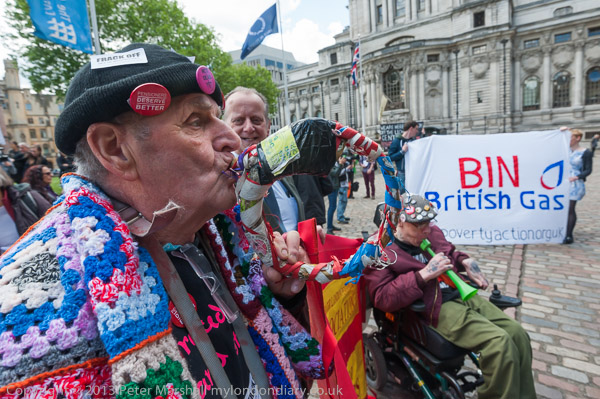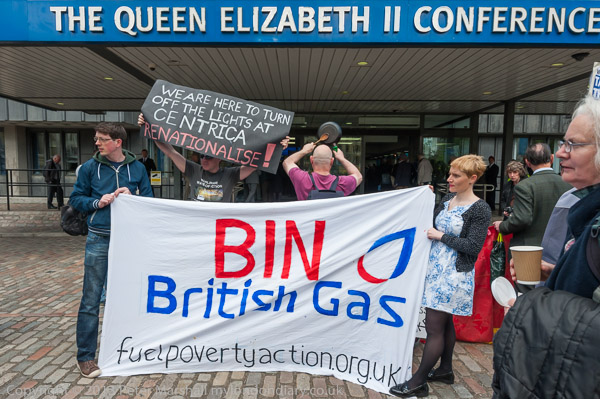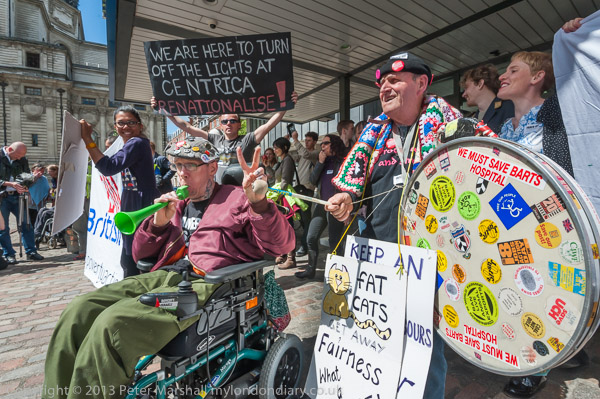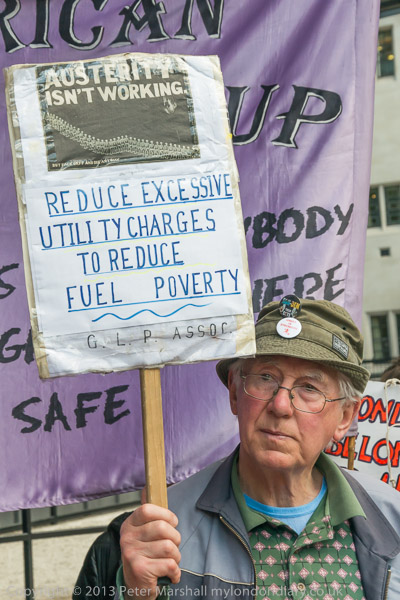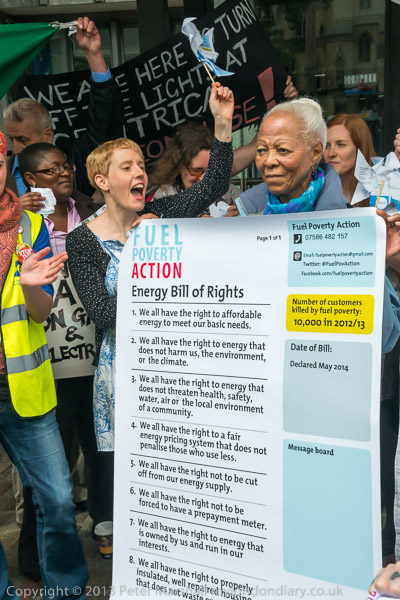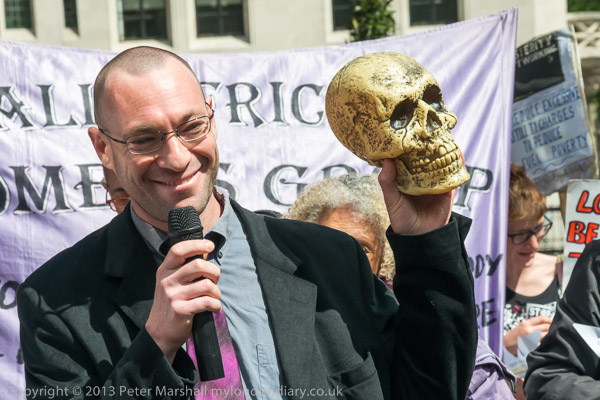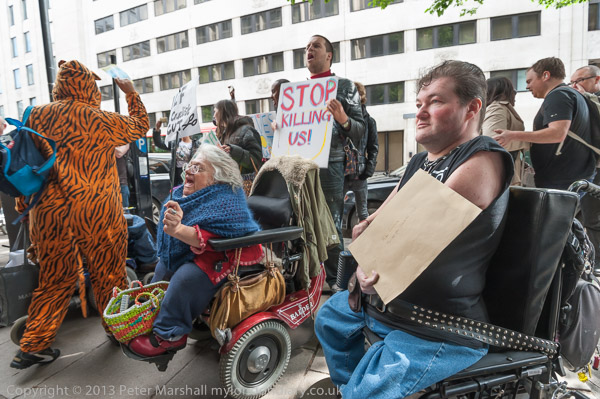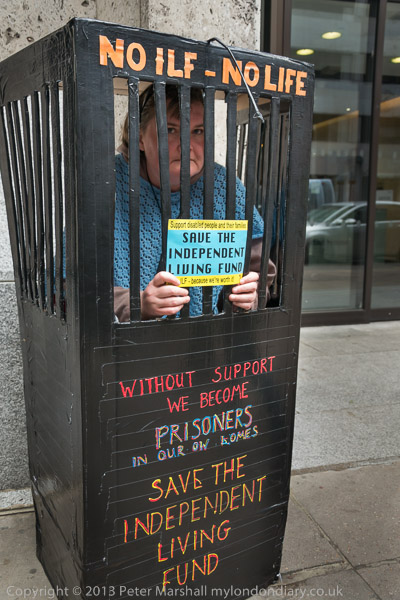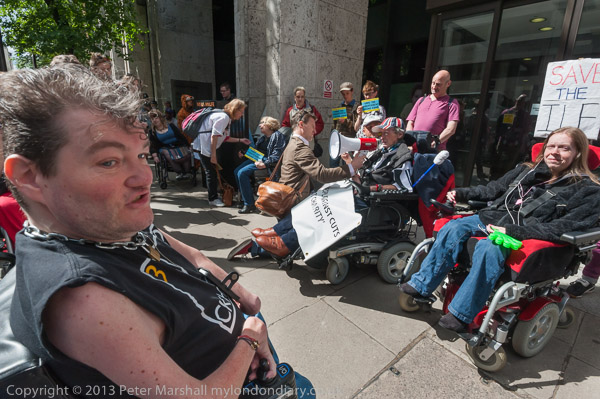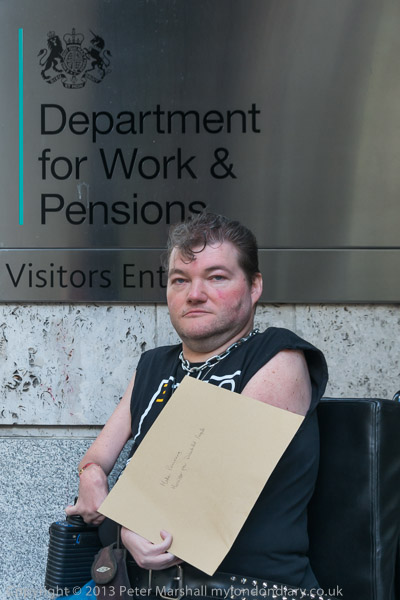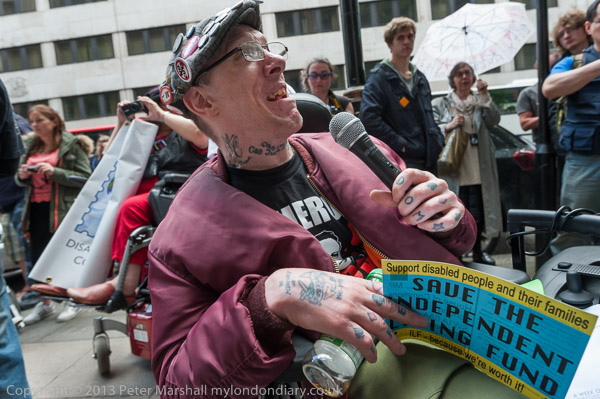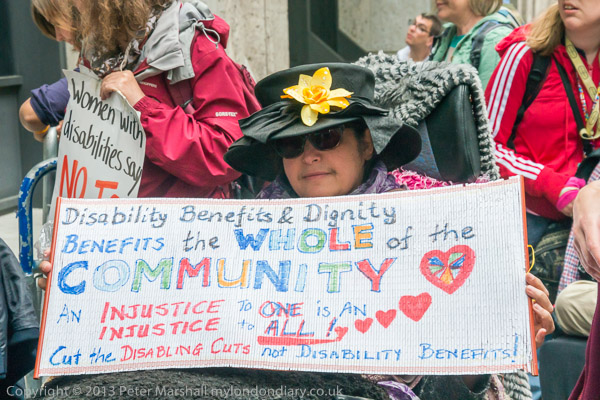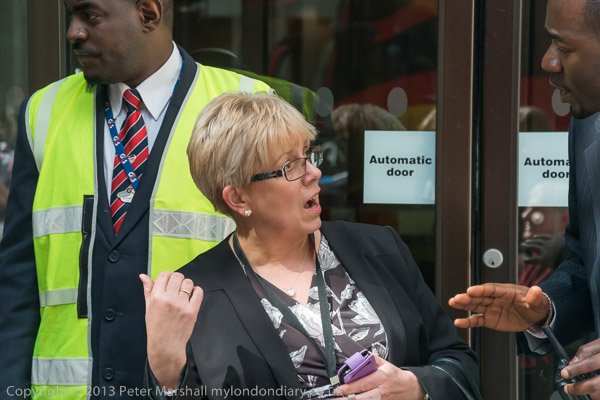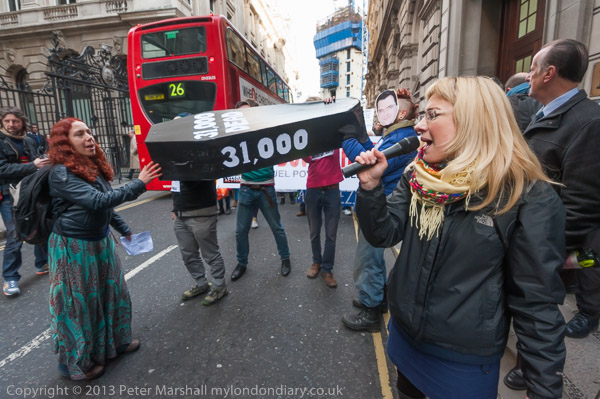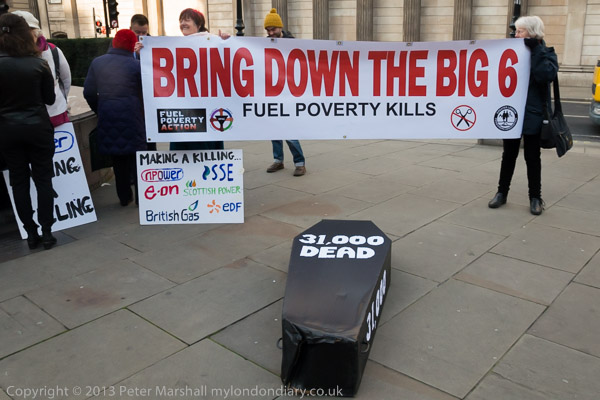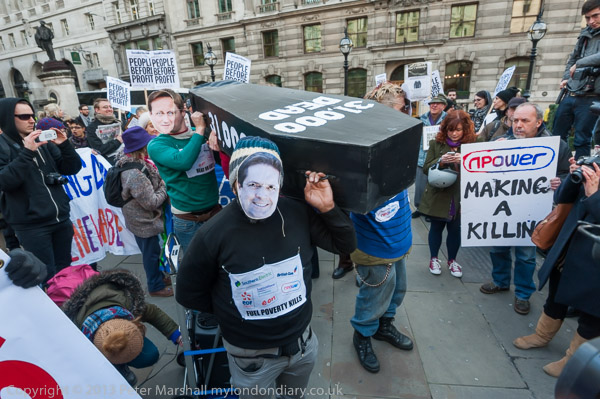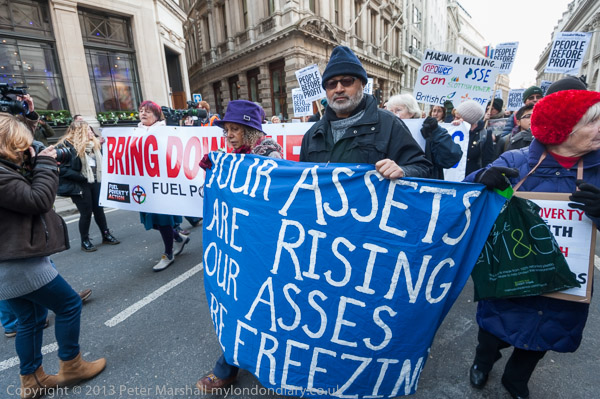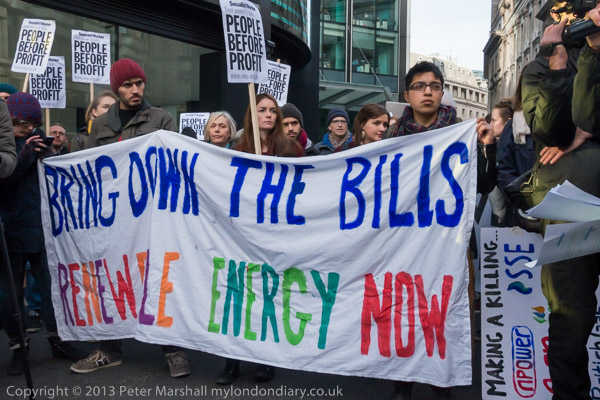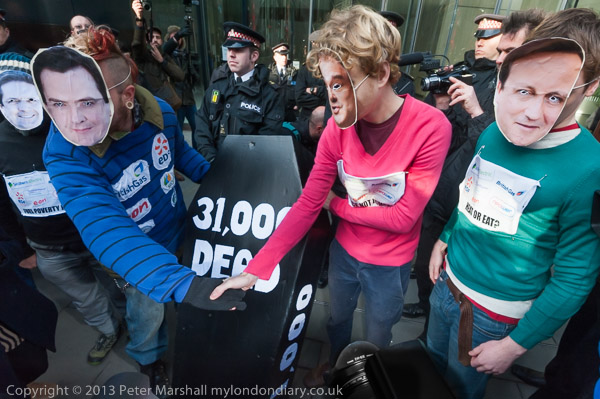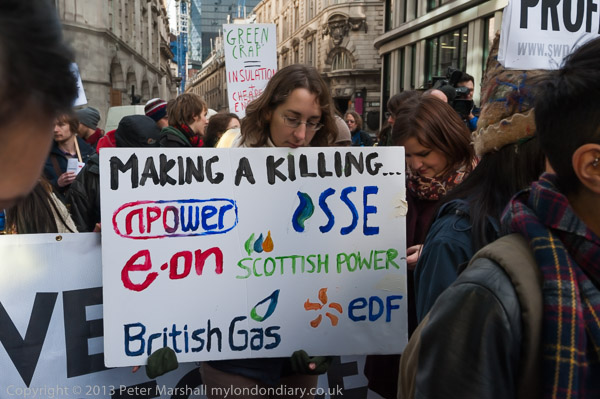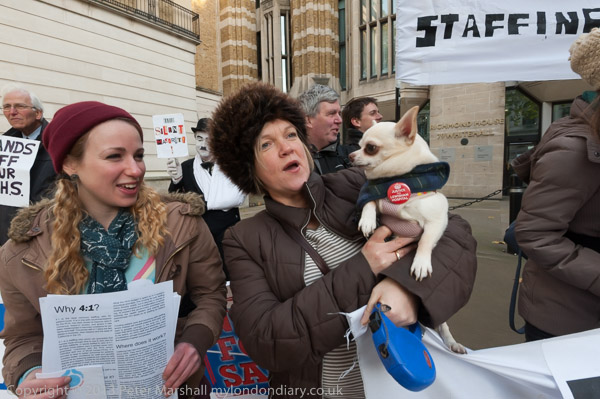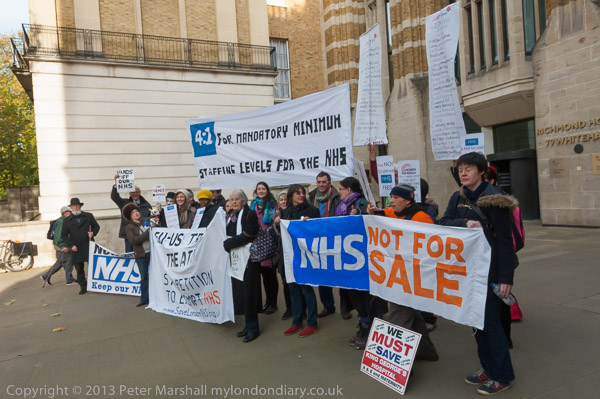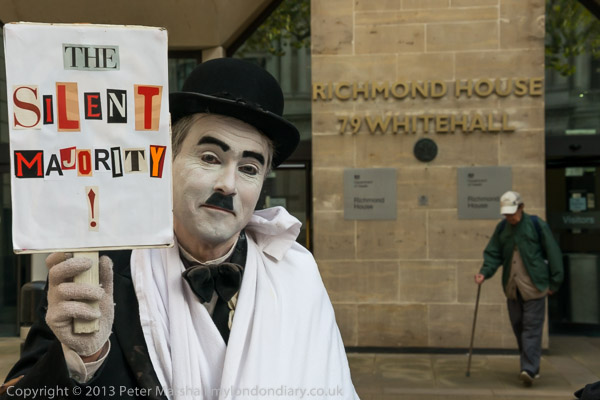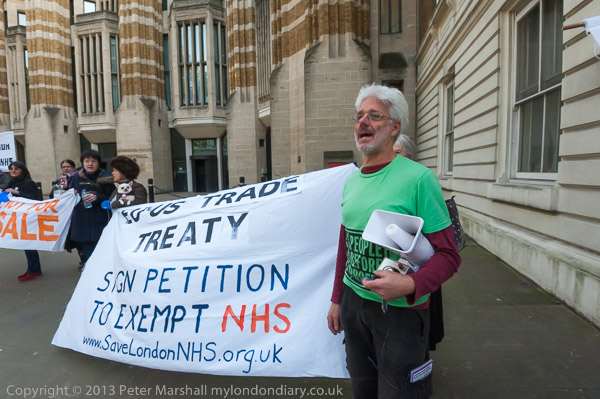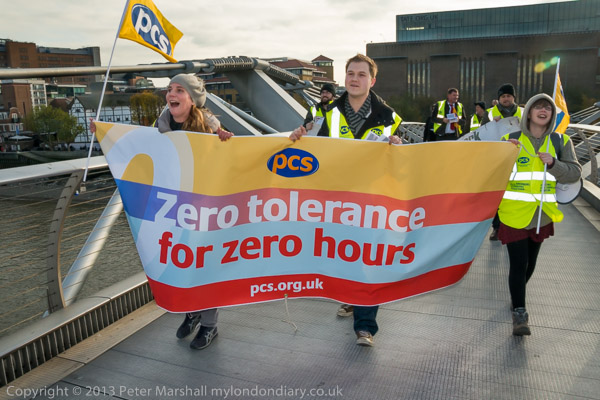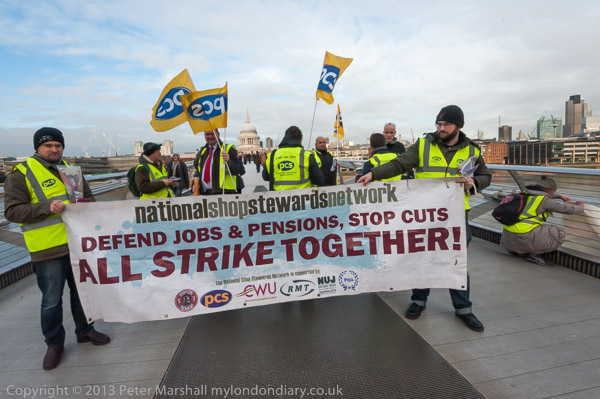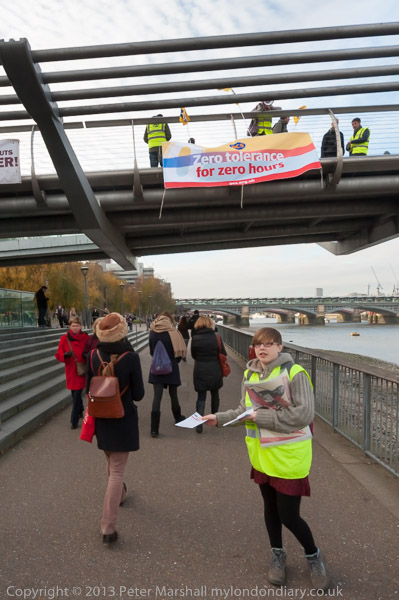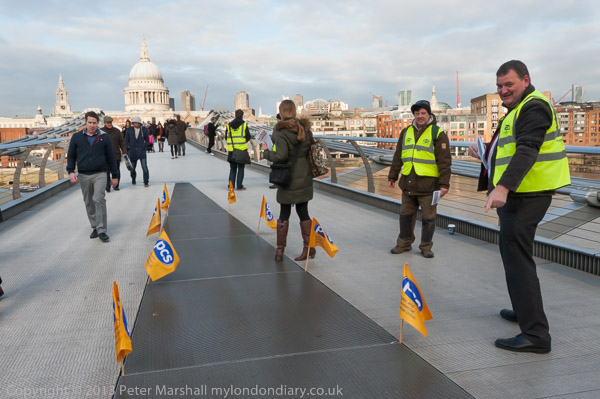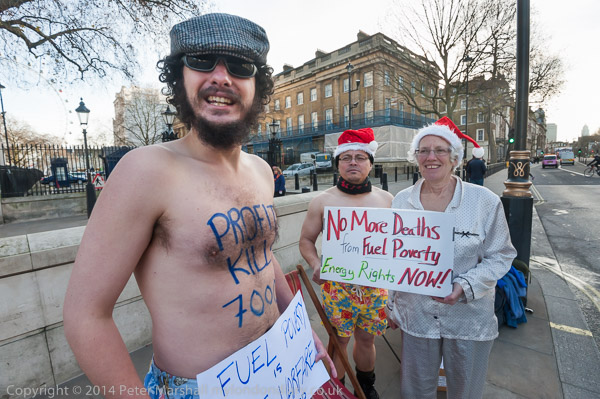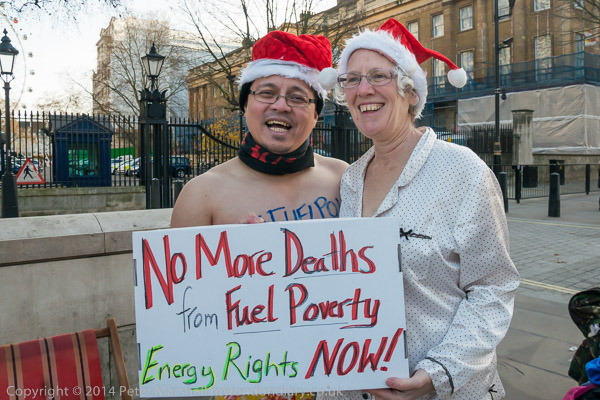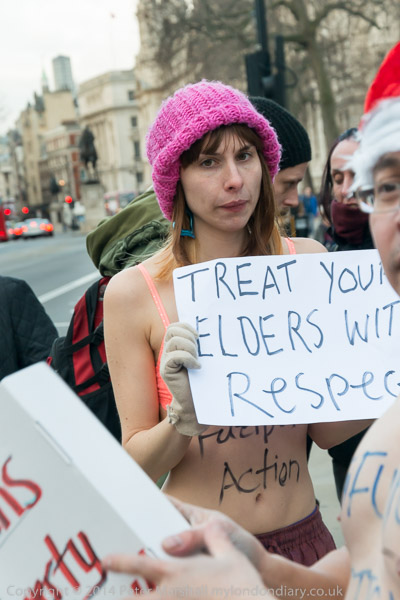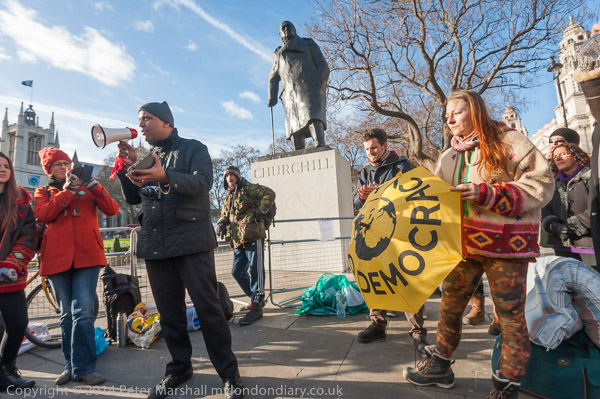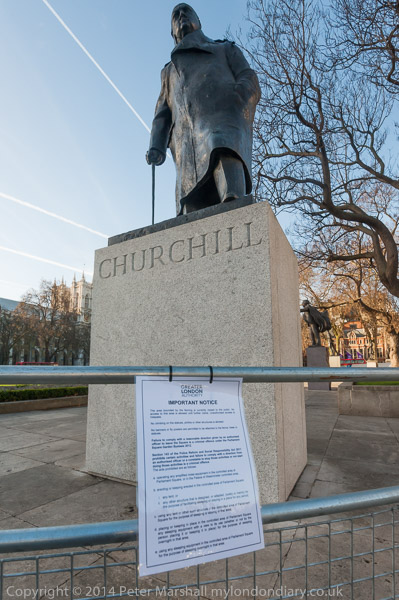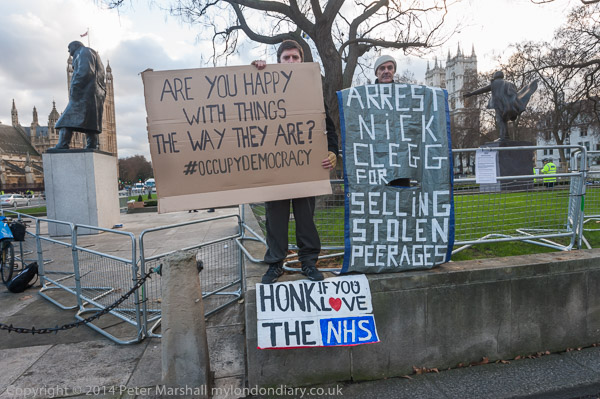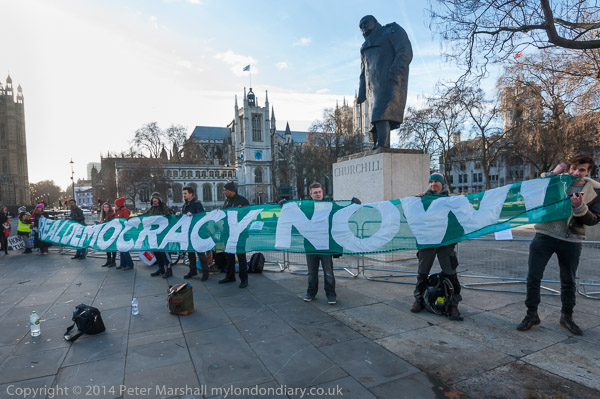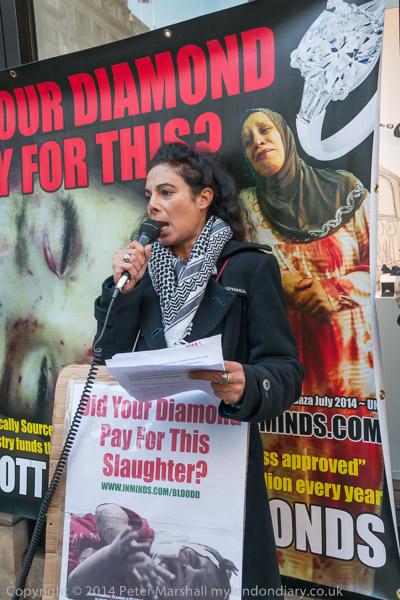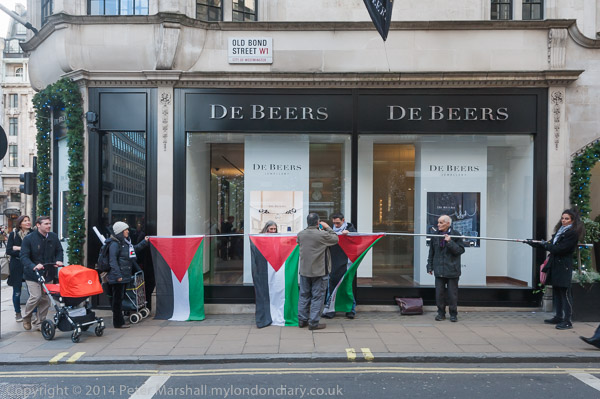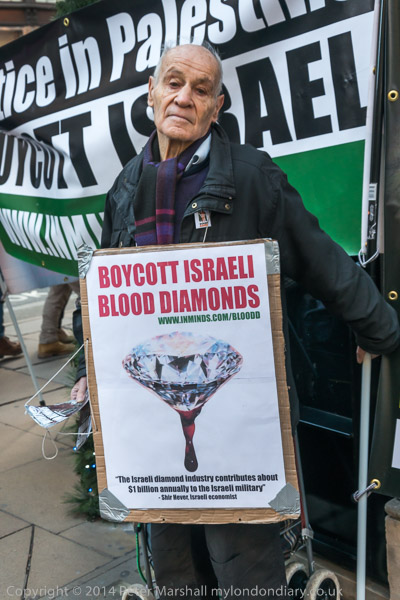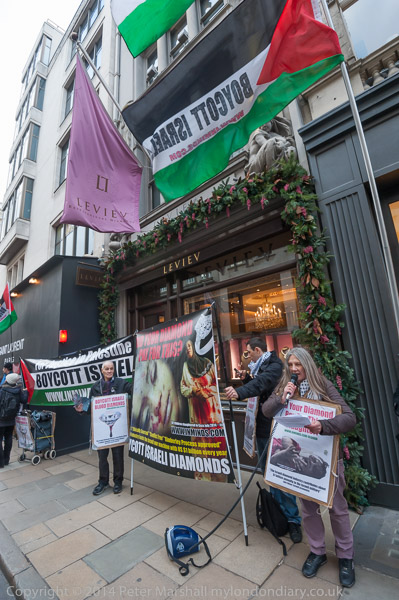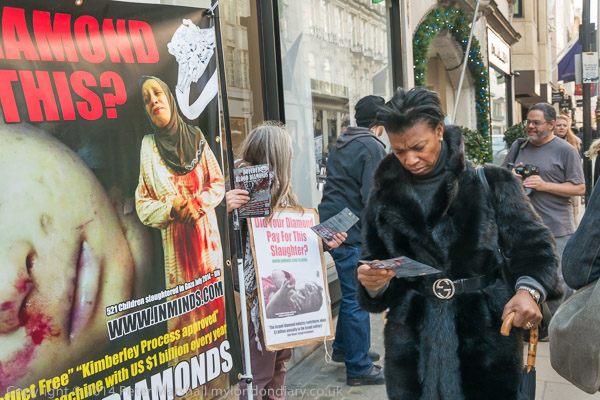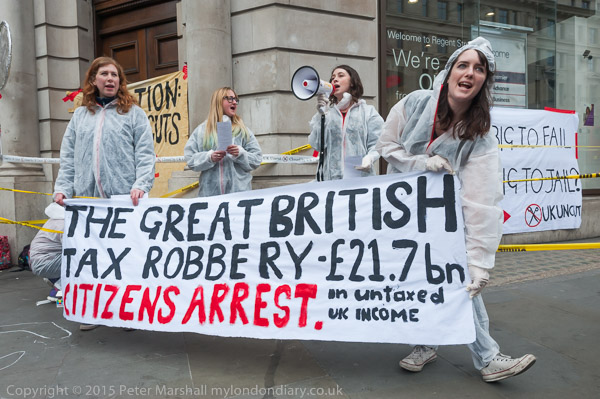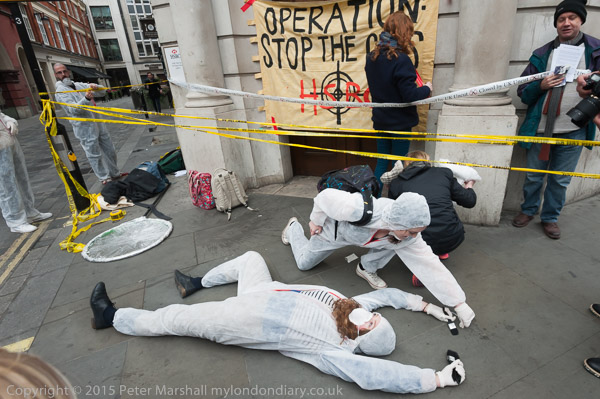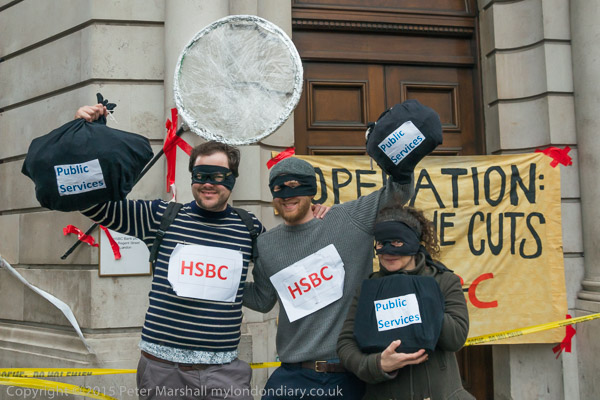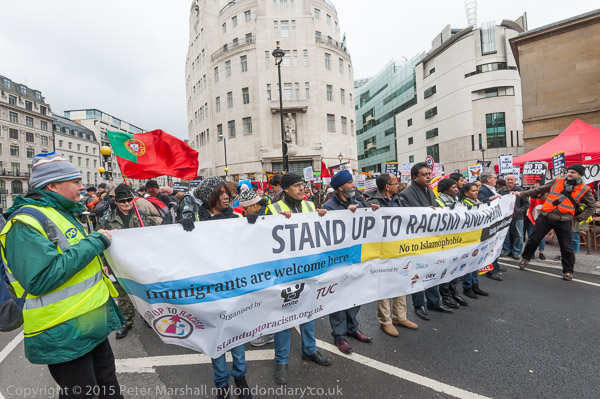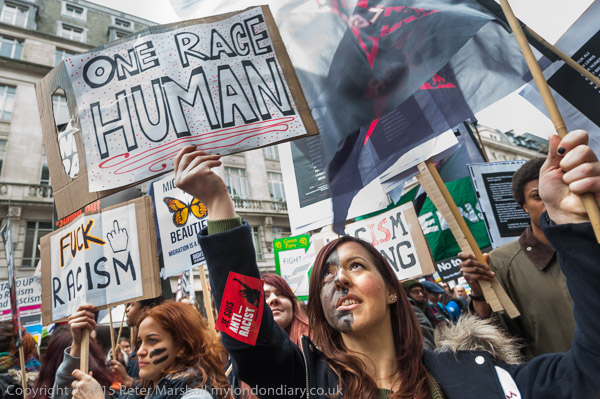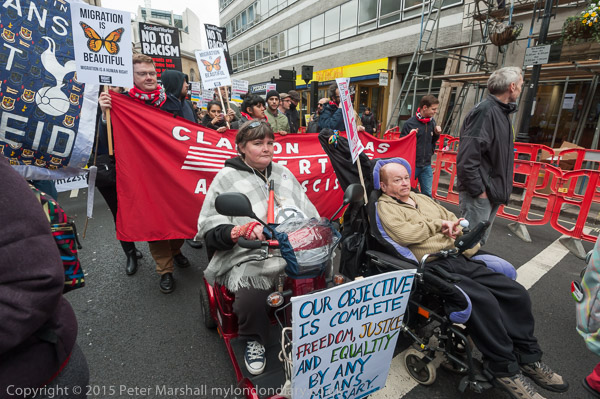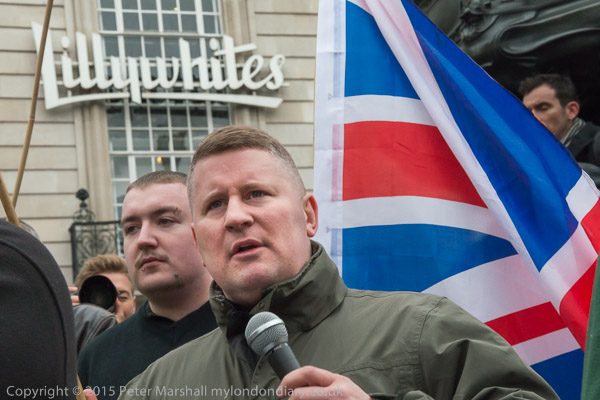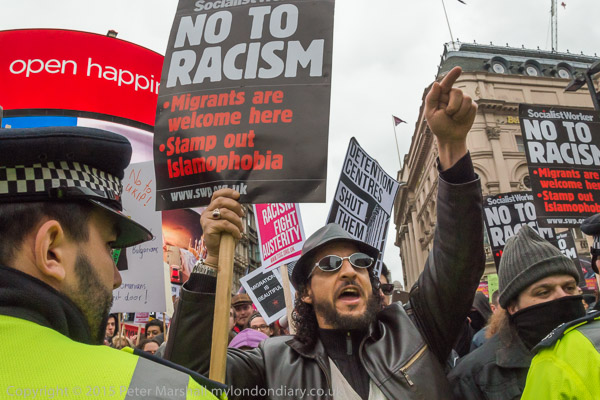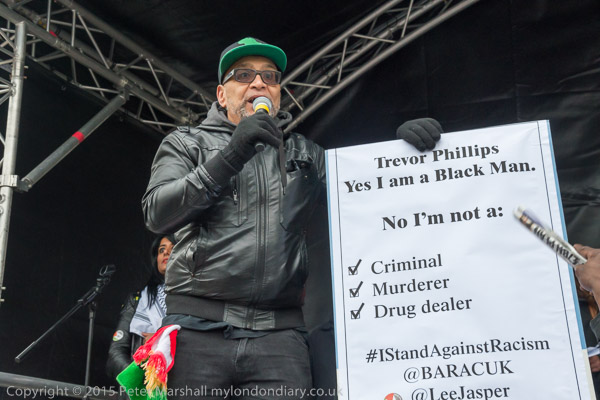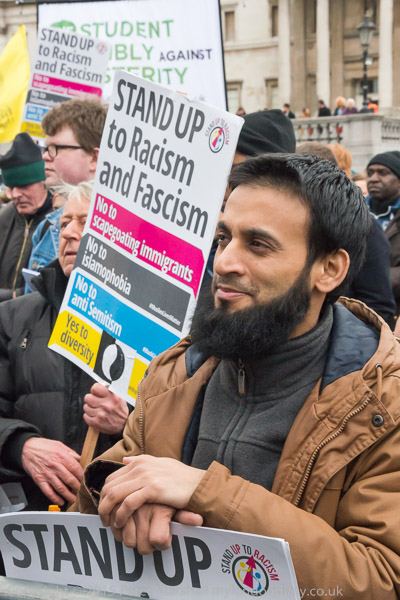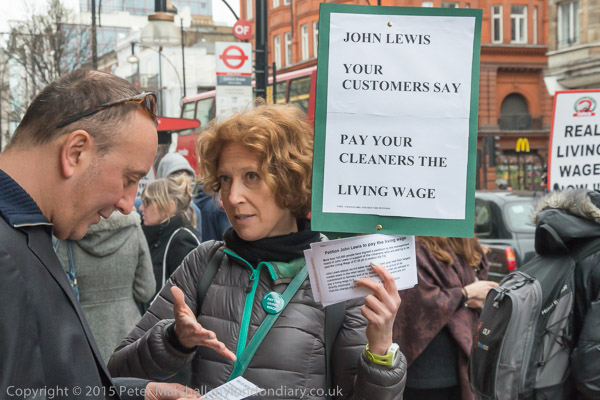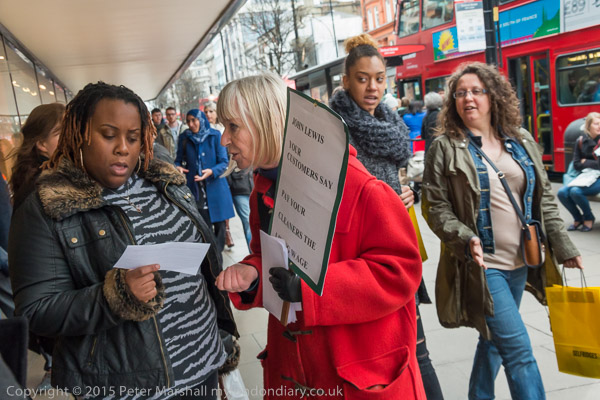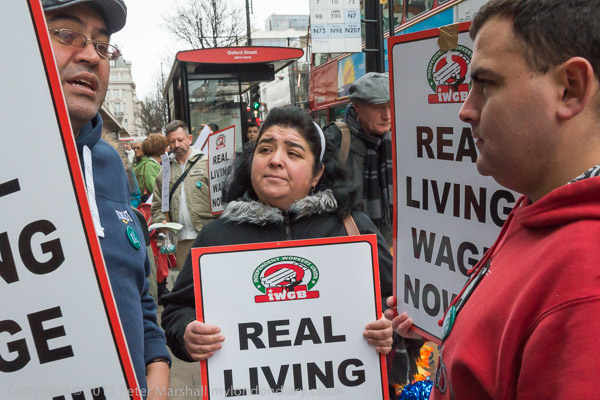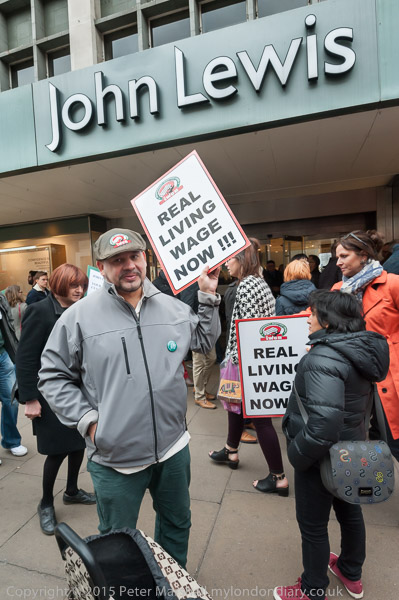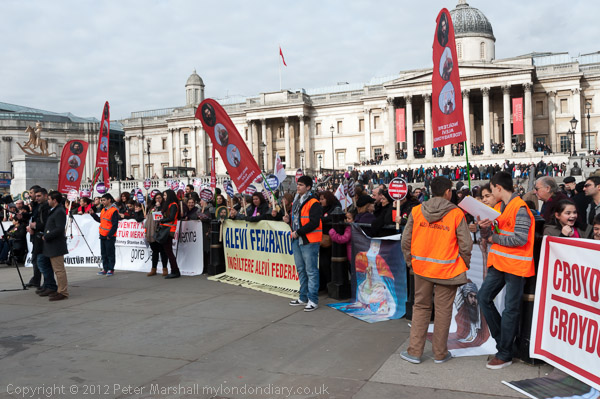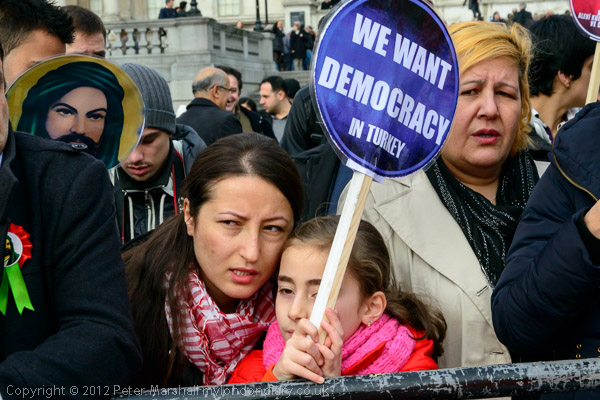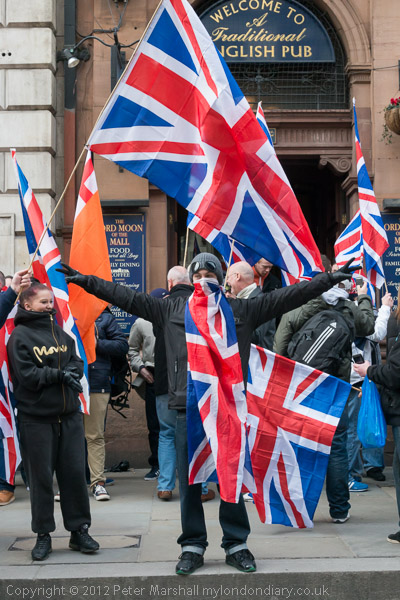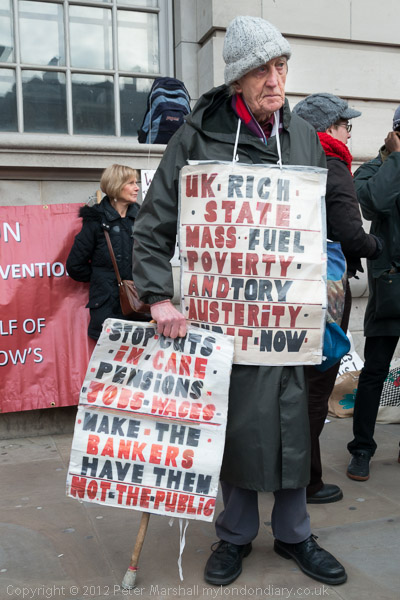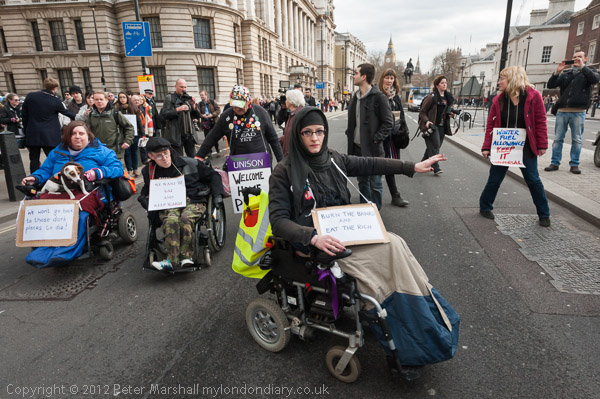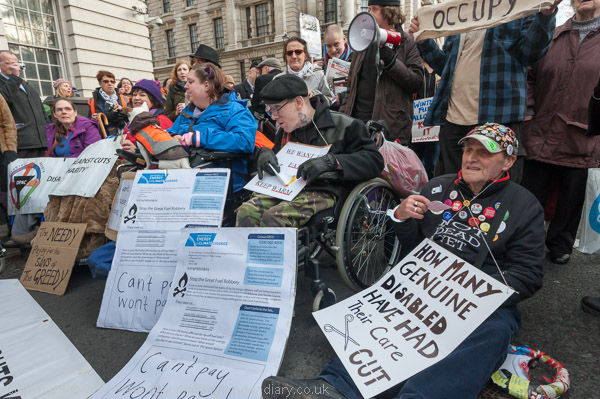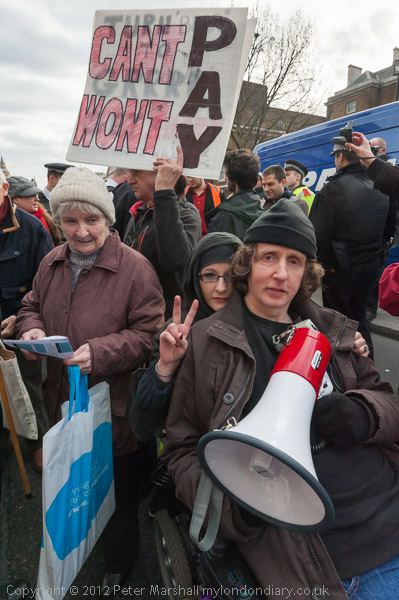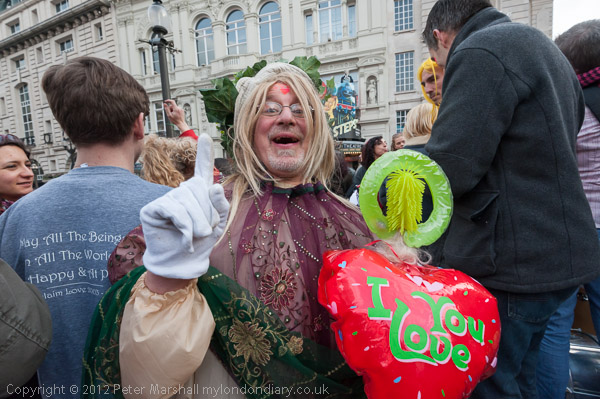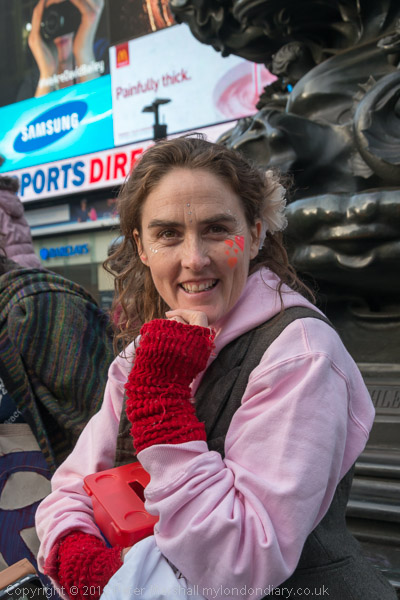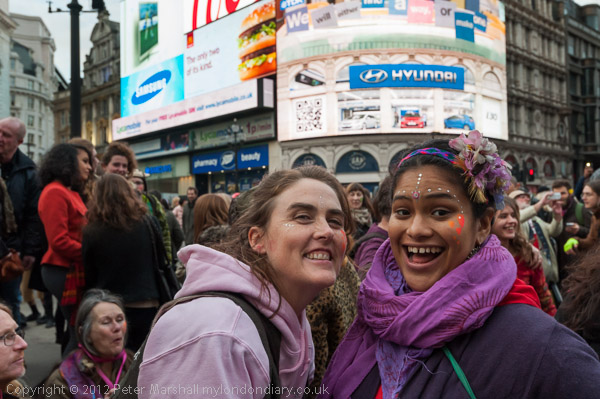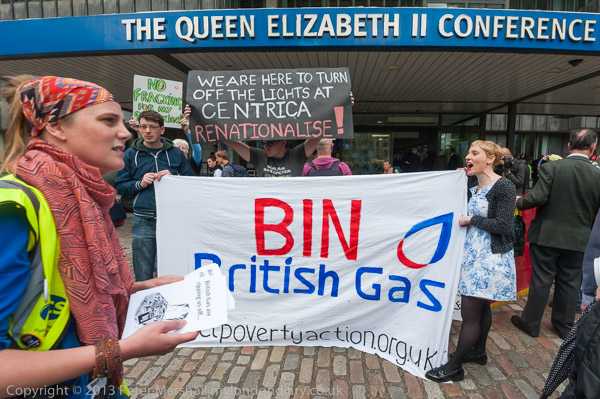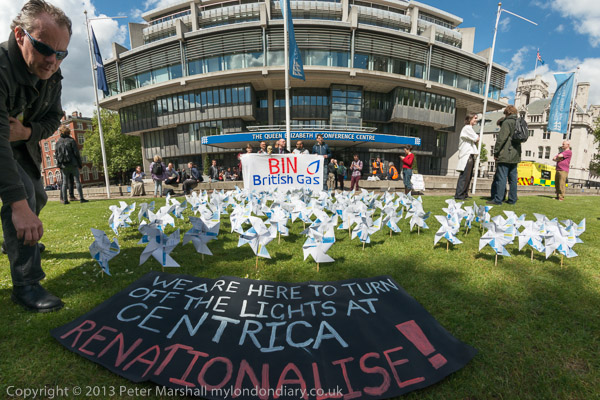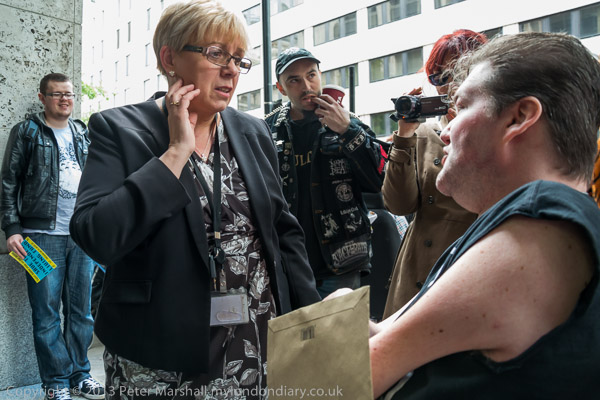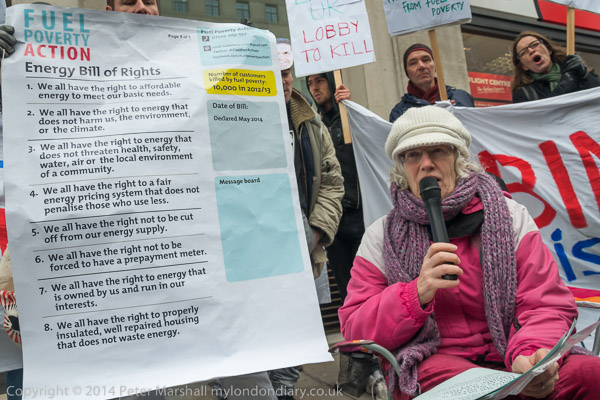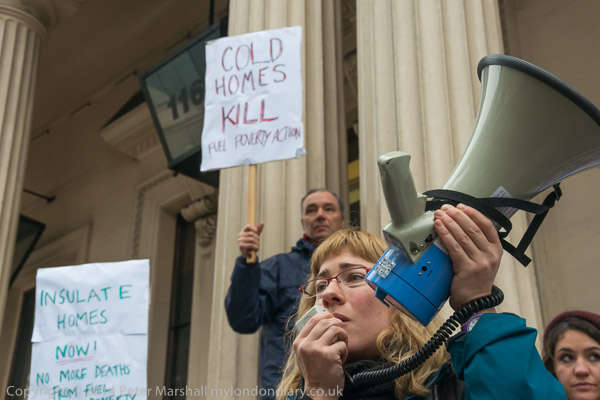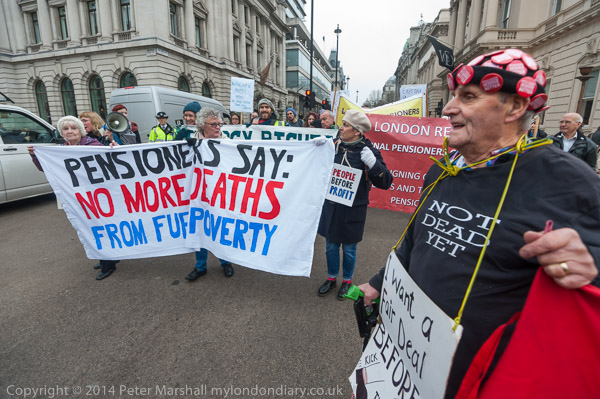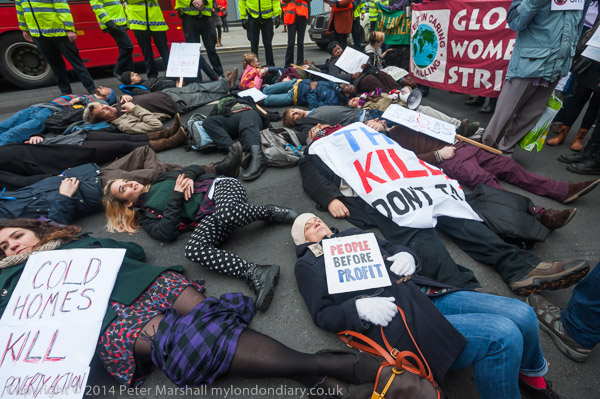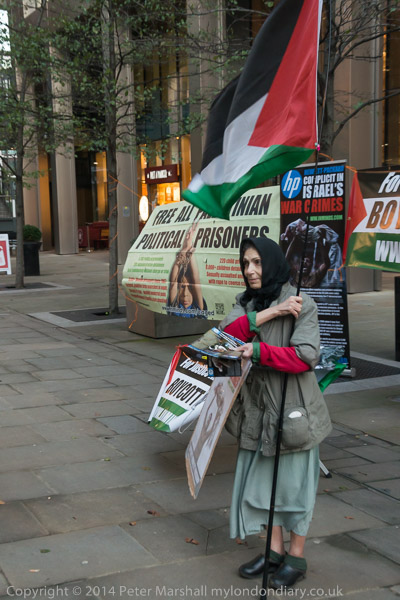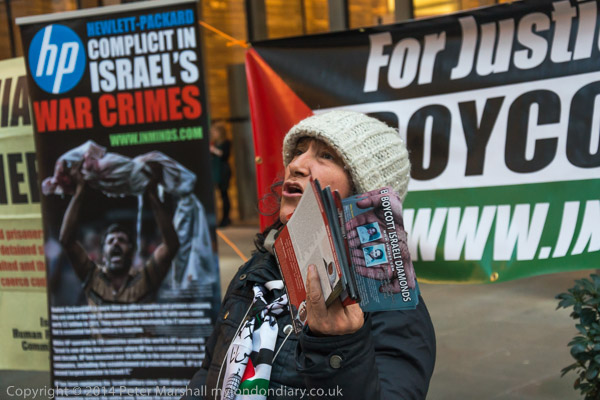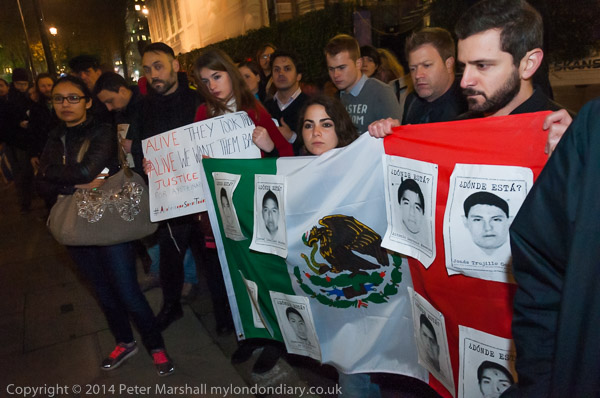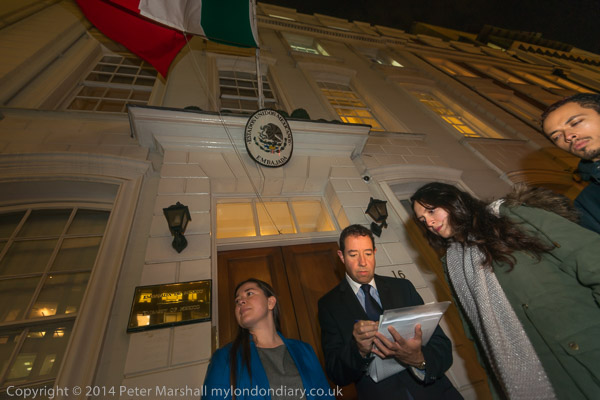Alevi, Union Flags, Fuel Poverty & Reclaim Love: Saturday 16th Feb was a busy day for me, beginning with a protest by Alevi against religious discrimination in Turkey, on to an extreme right protest in support of Belfast ‘loyalists’. Then a rally over fuel poverty which ended with a road block by disabled protesters. My day in London ended in Piccadilly Circus at the Reclaim Love Valentine Party, though I arrived there rather late.
You can read longer accounts and see more pictures of all these events on My London Diary.
Alevi Protest Discrimination in Turkey & UK
Trafalgar Square
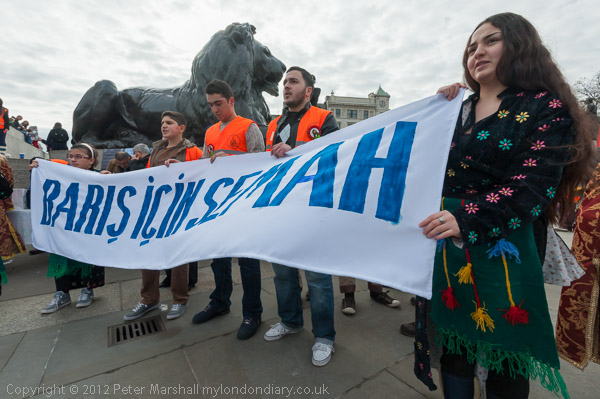
Estimates of the number of Alevi in Turkey vary widely but they probably make around 15% of the population, including many Kurds. Their religion is generally considered a part of Shi’ism, but they worship in their own languages, men and women together; women are not required to cover their hair, and their worship incorporates their rich traditions of poetry, music and dance – Semah.
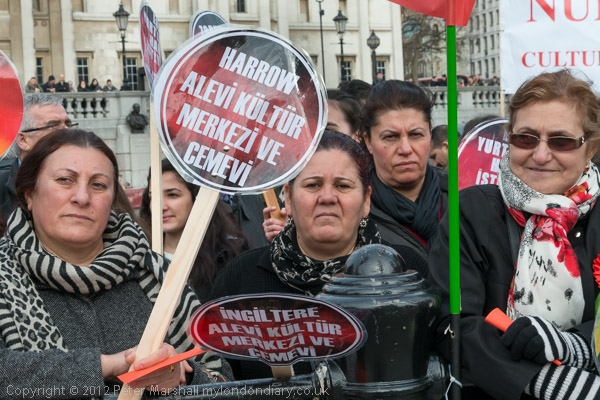
Turkey is a country ruled and dominated by Sunni Muslims and the Alevi have suffered centuries of religious persecution – sometimes violent, and while Christian and Jewish children in Turkish schools are exempted from the compulsory Sunni Muslim religious classes, Alevi are not.
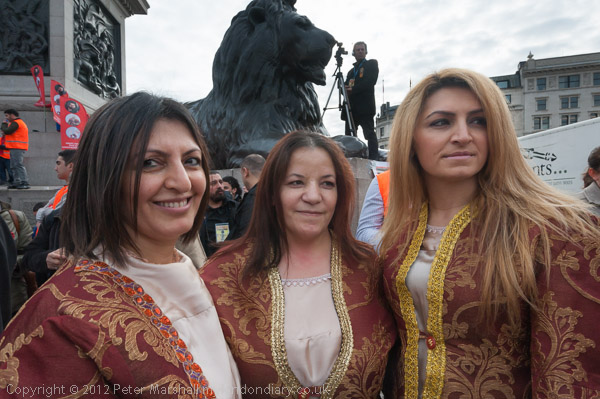
The rally called for democracy in Turkey, an end to discrimination and persecution, and an end to this compulsory religious education.

They also called for all immigrant cultures in the UK to unite and fight to remind the UK government of its responsibilities towards them, saying they face “ignorance from institutions such as the health, education, police, social and political bodies.” They call for an equal education system which considers the needs of all different cultural backgrounds.
More at Alevi Protest Discrimination in Turkey & UK
Defend the Union Flag
Westminster
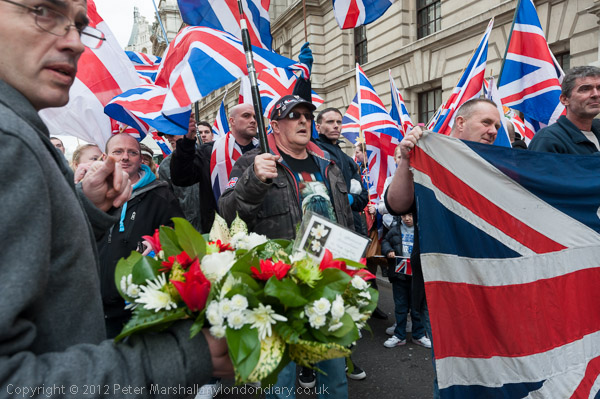
Around a hundred ‘patriots’ from the ‘South East Alliance’ marched down Whitehall carrying Union Flags to a rally with speakers from Britain First in support of Loyalist Flag protesters in Belfast.
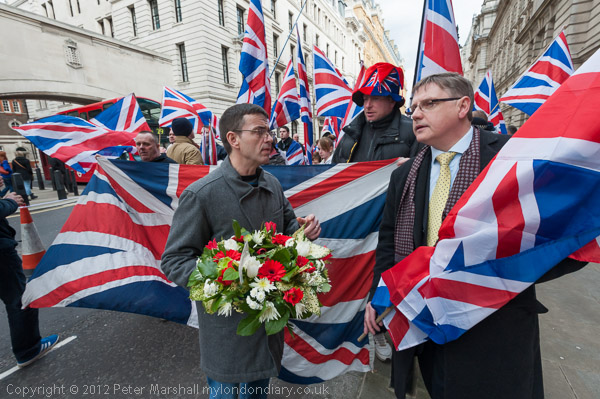
Belfast City Council had decided only to fly the Union Flag on eighteen days a year as elsewhere in the UK, resulting in series of protests outside Belfast City Hall organised by a breakaway unionist group which disagrees with the peace process.
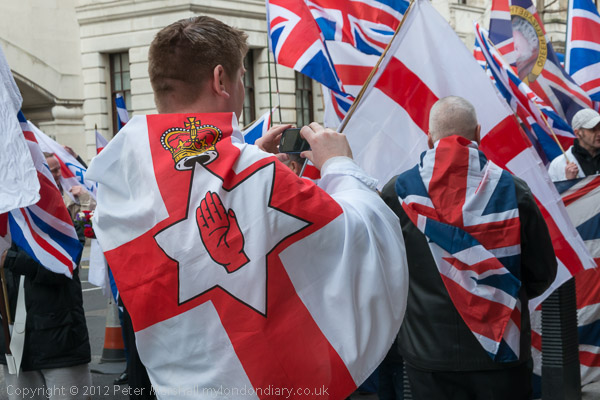
Around a hundred people came to the protest, mostly carrying Union flags, though there were a few Ulster and Orange flags also on show.
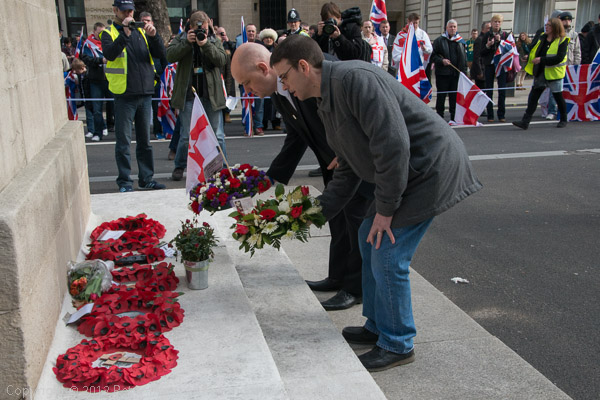
The marchers became silent at the Cenotaph where two wreaths were laid, one by the Kent Somme Society commemorating the Irishmen who died in the Battle of the Somme. They then marched on to Old Palace Yard for a rally.
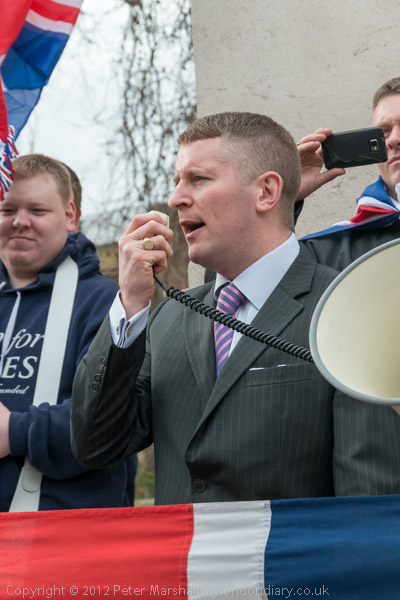
There were speeches from Paul Golding of Britain First, Paul Pitt of the South East Alliance and Britain First’s Northern Ireland organiser Jim Dowson who had been involved in the protests there.
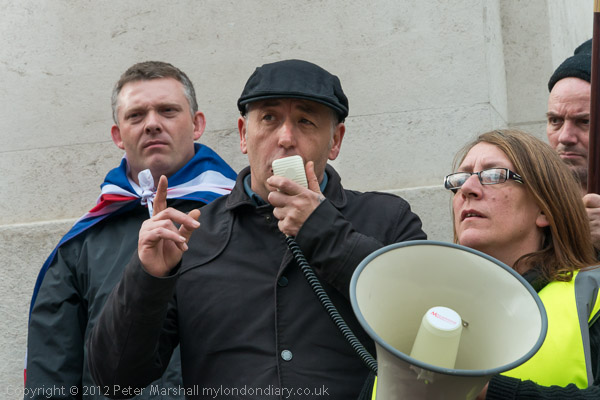
A few photographers were threatened by protesters but I suffered only some mainly relatively friendly banter from several who recognised me from other extreme right marches I had photographed, including some who mistook me for a Searchlight photographer.
More at Defend the Union Flag.
Fuel Poverty Rally & DAN Roadblock
Department of Energy and Climate Change Whitehall
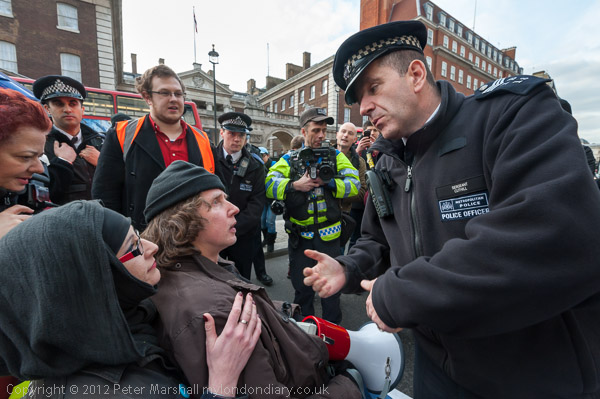
A rally organised by Fuel Poverty Action and supported by Disabled People Against Cuts, Greater London Pensioners’ Association, Redbridge Pensioners’ Forum, Southwark Pensioners’ Action Group, Global Women’s Strike and others was a part of a national day of action against fuel price rises and the government’s energy policies

Cuts and rising prices now meant one in four families now have had to choose between heating their homes adequately or eating properly. Many children were going to school hungry and we had seen a phenomenal rise in the need for food banks – now even in the wealthier suburbs, with many unable to buy food.
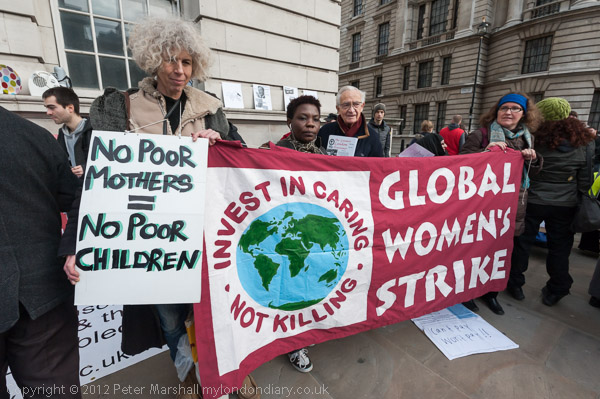
Fuel Poverty Action say that the government was doing everything it could to keep the big six enery companies making profts while “disabled and elderly people are forced into libraries and shopping centres to keep warm and people with cancer freeze in their homes with the heating off” as crucial benefits are slashed.
Many also suffer from benefit sanctions, losing financial support often for trivial reasons or for things beyond their control – such as a cancelled bus making them arrive late for an appointment. There seems to be a particularly vindictive approach encouraged (or mandated) at job centres towards claimants.
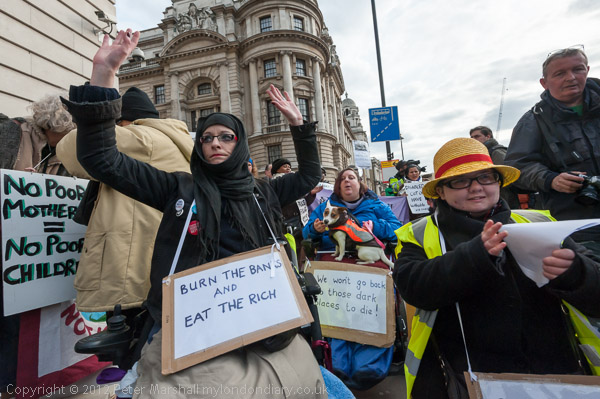
At the end of the rally disabled activists, many in wheelchairs went out onto Whitehall blocking the southbound carriageway. Some pensioners joined them, handcuffing themselves to the wheelchairs and others came to stand around them in the roadway. There were some more speeches from some of the protesters.
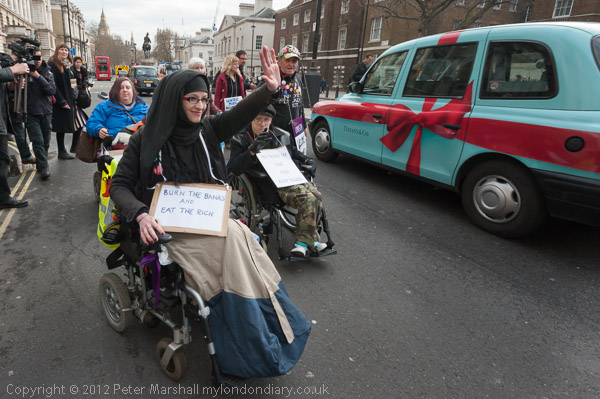
After around a quarter of an hour police came and talked with the protesters asking them to leave. They were still asking 15 minutes later and by then many of the protesters were feeling they had made their point and were ready to go for a cup of tea. When they told police they would leave in ten minutes I left to rush to the Reclaim Love party which had started over an hour earlier.
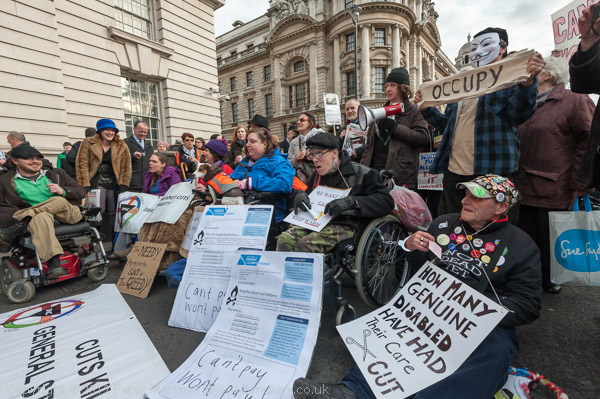
Much more at Fuel Poverty Rally & DAN Roadblock.
Reclaim Love Valentines Party
Piccadilly Circus
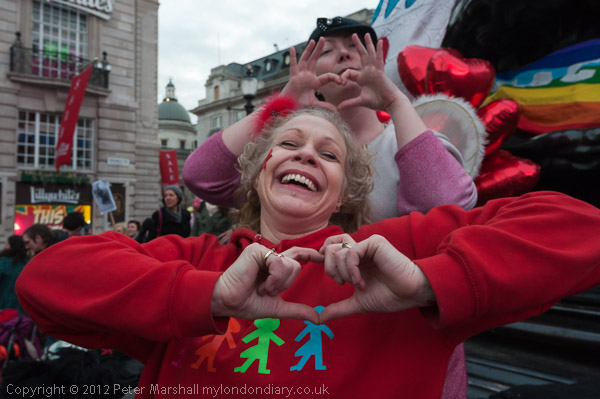
The 11th Reclaim Love free Valentine’s Party – and the 10th organised by Venus CuMara who started the whole thing in 2004 – took place around Eros in Piccadilly Circus, aiming to spread peace and love around the world, and to reclaim love from its commercial exploitation.
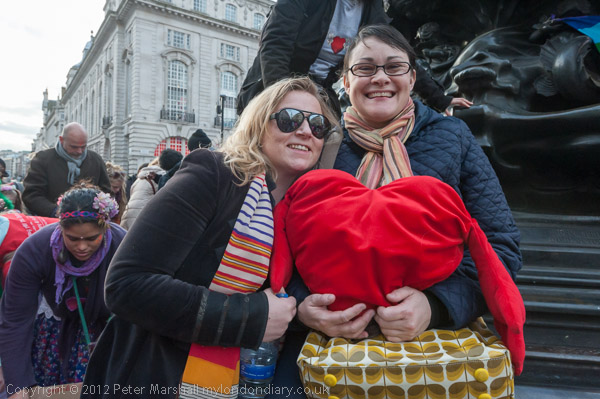
I arrived late, after people had joined hands in the large circle around Eros to make their call for peace and happiness around the world, but the party was continuing and I took rather a lot of pictures – here are a few.
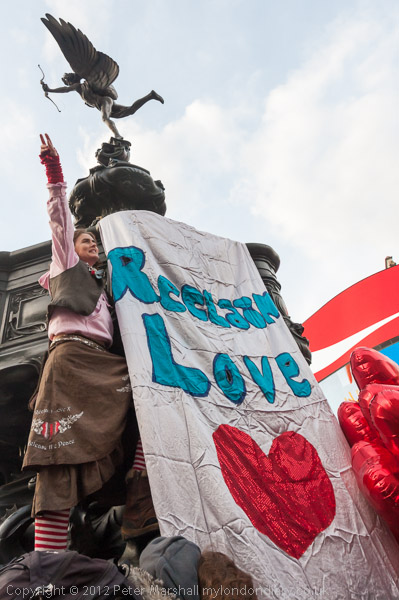



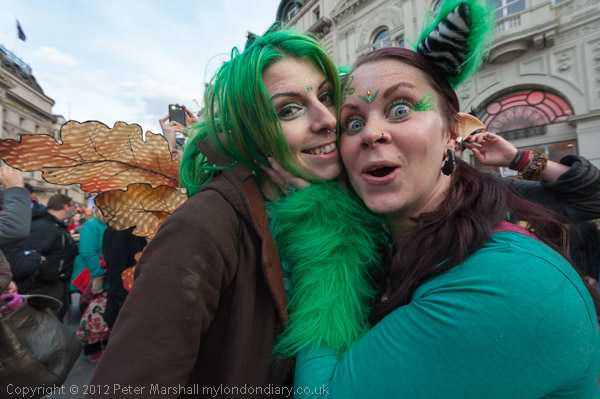

I’ve written more about Reclaim Love on My London Diary over the years, and there is some more, along with many more pictures from the 2013 event at Reclaim Love Valentine Party.
Flickr – Facebook – My London Diary – Hull Photos – Lea Valley – Paris
London’s Industrial Heritage – London Photos
All photographs on this page are copyright © Peter Marshall.
Contact me to buy prints or licence to reproduce.
